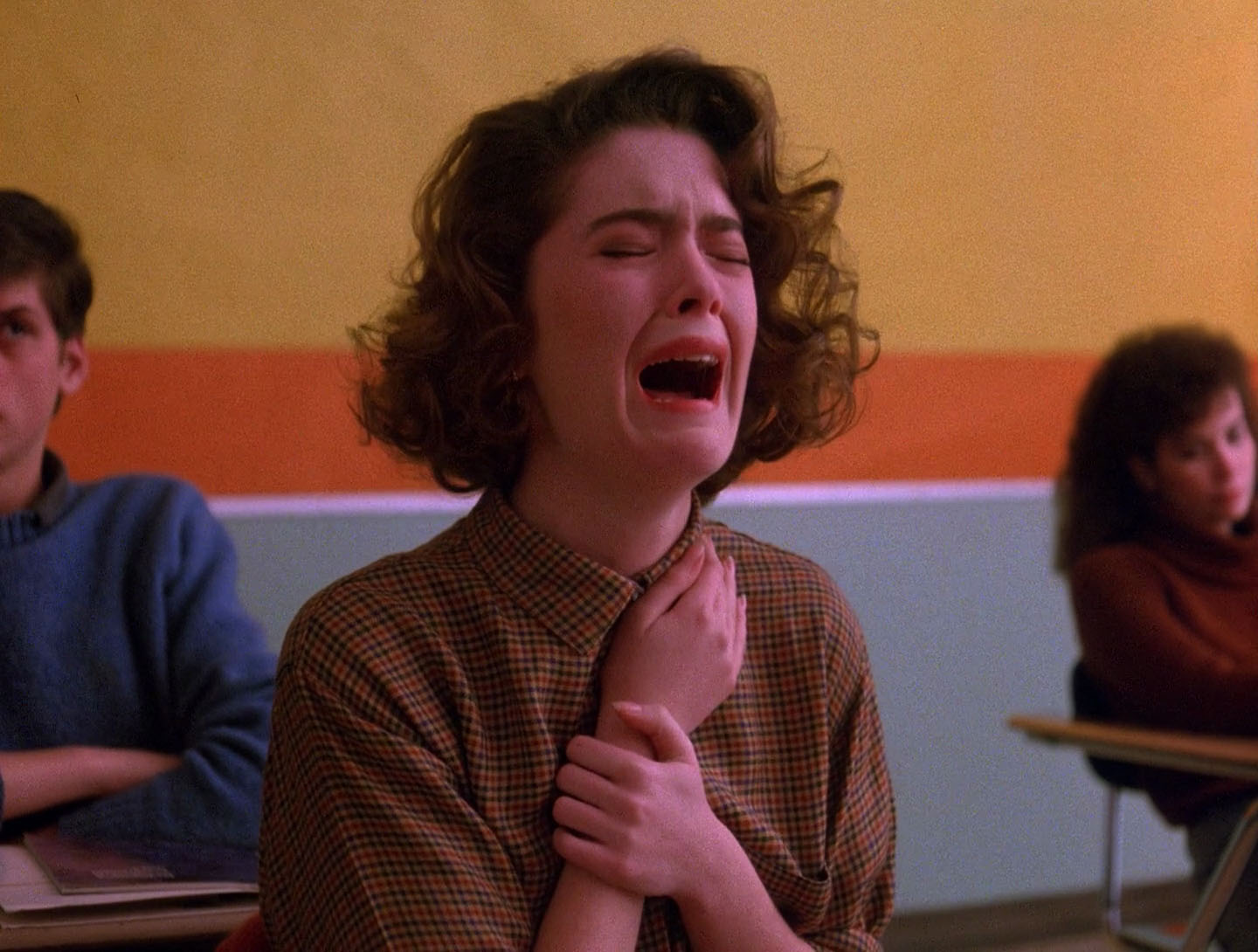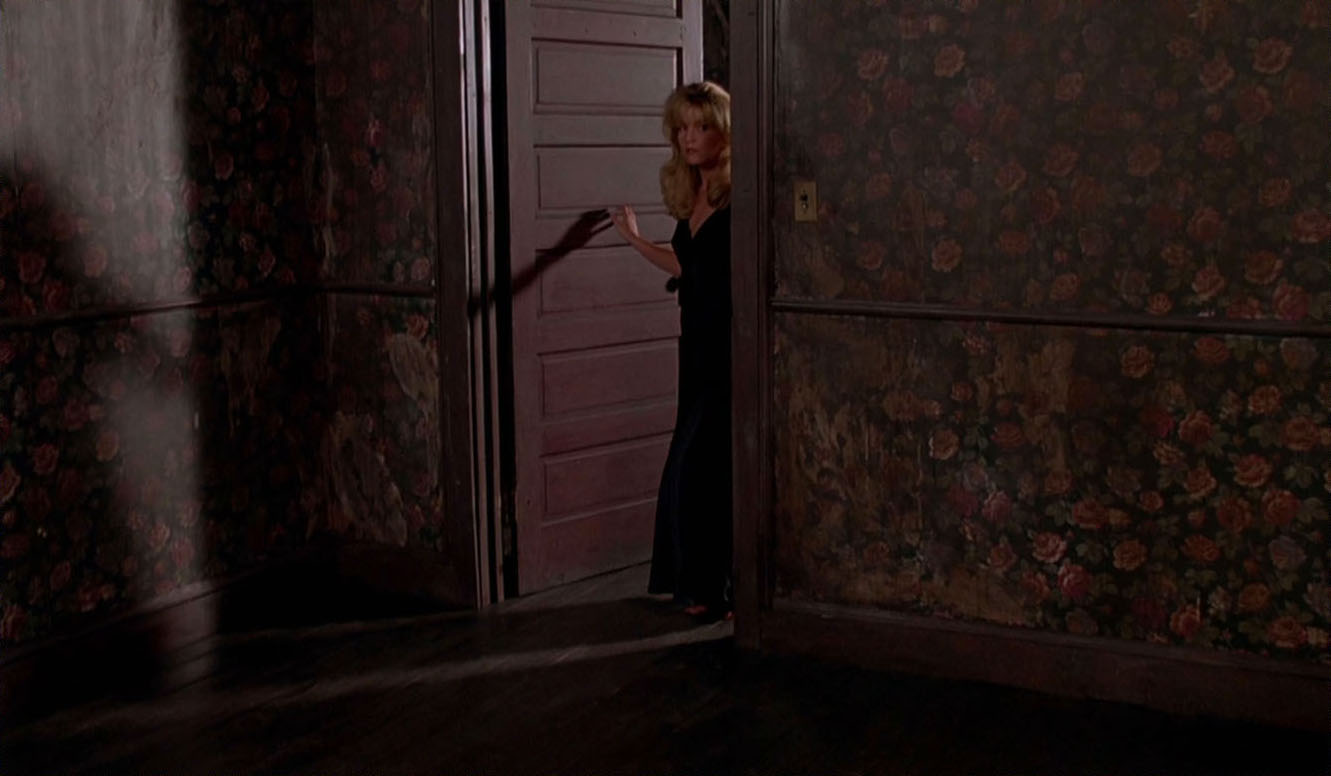david lynch, eulogy_011625

the news of david lynch’s death came to me today through a text message from a friend. i didn’t believe it was true—after all it couldn’t actually be true—so i searched the internet to satisfy my doubts. at first there really was no mention of it, and i smiled. then, slowly, like a polaroid developing, obituary after obituary began to appear as i refreshed and refreshed. immediately, my face now wet with tears, i sent messages to those with whom i’ve shared a great delight in his work. immediately and sweetly each one of them responded.
i have just arrived back in new york for a brief trip. new york is a city i used to call home in a country i was fundamentally drawn to as a teenager. i was pulled here by the allure of artists like david lynch and trent reznor, who were making work (and at that time, together) that felt so unsafe that it excited my young mind. i am sitting at the kitchen table of my friend’s brooklyn apartment working on some film titles. i was sitting here when the news of lynch’s passing came in just hours ago. i was so consumed with tears in that moment that this scene from twin peaks started playing out in my mind. it’s a scene i’ve often thought of when crying, as in some ways it’s always helped me feel okay about crying as much as i do. the scene is from the pilot episode of the TV show. it depicts donna hayward, james hurley and audrey horne—sitting in their high school class room during a roll call—finding out that their classmate laura palmer is dead.
in the scene a policeman enters the class room and asks for a kid called bobby briggs. the cop then whispers words we can’t hear into the teacher’s ear whilst, simultaneously, an unidentified female student runs past the class room outside screaming in tears. then, as the teacher turns to the class and fearfully glances at laura’s empty desk chair, donna and james share a profound sense of what’s happened to their friend. donna then sighs, says “laura” out loud and starts to cry, and—after the teacher elliptically says “there’ll be an announcement from the principle”—james uncontrollably snaps the pencil he’s holding as his right hand becomes a fist.

the crying isn’t the whole story here though. there are other reasons this scene returns to me so frequently. first of all: every beat of it exhibits a thing prevalent in lynch’s work; a thing that’s been so important to my work; a thing that has consequently lead me to the work of robert bresson, jean-luc godard and andrei tarkovsky. the scene delivers profoundly accessible feelings with barely a word of dialogue spoken. angelo badalamenti’s famous score is also left that the door, only to be replaced in small part by lynch’s trademark ambient soundscaping. sure, the policeman’s unintelligible whisperings to the teacher, the inarticulate knife-slash of the student screaming past outside and donna exhaling “laura” would lead those with eyes closed in a certain direction. however it’s the sequence of images used here that are invaluable to us the audience, as we find our own deeper way to relate to the action: there’s the look on everyone’s faces as the policeman enters the room and then whispers to the teacher. there’s the look on donna and james’ faces as the girl runs past outside and as the teacher glances in the direction of laura’s empty chair. then, finally, there’s the sense of loss expressed by the shot of laura’s empty chair itself, and donna and james’ consequent reactions to that. i have spent much of my life figuring out how to communicate the ineffable effectively with only one or two images, and so i’ve kept returning to this scene, and countless others in lynch’s work, in reassurance of the possibility.
second of all: there’s that eagerness david lynch possessed to let go of the handlebars and order each scene or act in his films such that they connect with those around them more because of a feeling than any clear rationale. he once said, “i don’t know why people expect art to make sense when they accept the fact that life doesn’t make sense,” in response to which the film critic (and champion of jean-luc godard’s work) richard brody excellently quipped: “that’s why.” both men are of course right in some sense, but for me it’s lynch’s view that feels closer to life as i experience it. at my most heartbroken a few years back, a friend whispered to me on the phone: “i know it doesn’t make sense. don’t try to make sense of it. it’s never going to make sense.” it helped me profoundly to hear that, and again i found comfort in thinking of laura palmer’s empty chair in the class room, and the unidentified girl running by outside screaming in tears.
it’s not lost on me that i’m here trying to express with words a feeling that one cannot express with words; moreover a feeling that words are often superfluous in visual artwork. to that end i’ll stop now. in fact all discussion of the unique power of images aside, the following quote from the film critic matt mahler is perhaps a more adept description of why i’m writing any of these words in the first place:
“I understand how strange it might be for a stranger’s passing to have this much of an effect on someone, but that’s just it — when you love an artist’s work, they aren’t a stranger. Their memories become your memories, their best thoughts and days motivate yours. Their sadness is yours, and they share with you the shreds of beauty they’ve discovered.”
i’ve shared a love of david lynch’s work with some of my closest friends, and even my family. earlier today in sharing with him the news, i told my brother that i had been crying. he said, “yeah, of course. it feels like a door has closed.”
again i cried.
and again, as my brother made clear, another image without words sufficed.

caspar